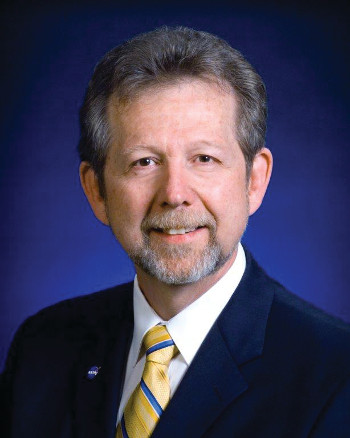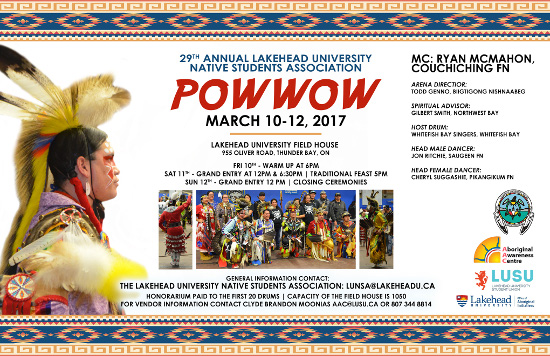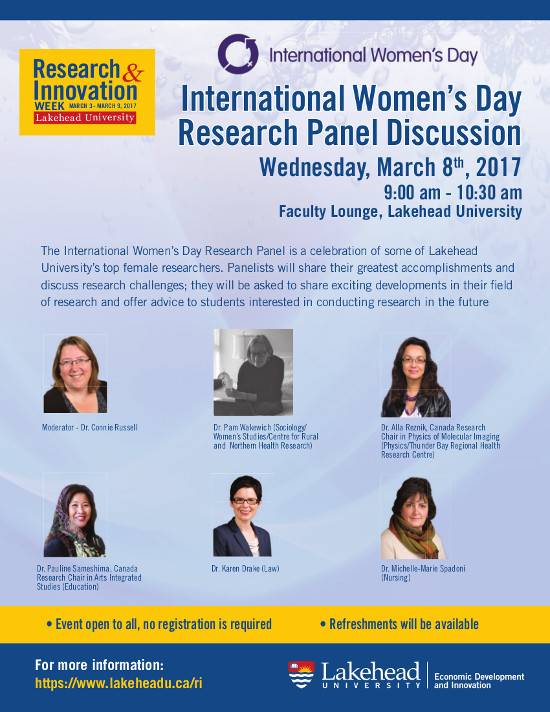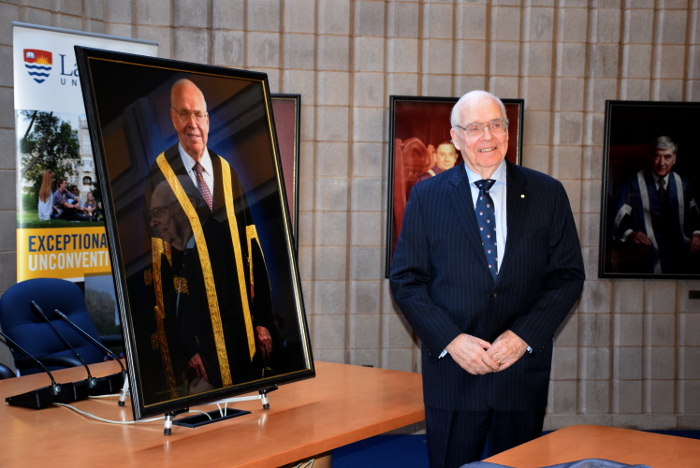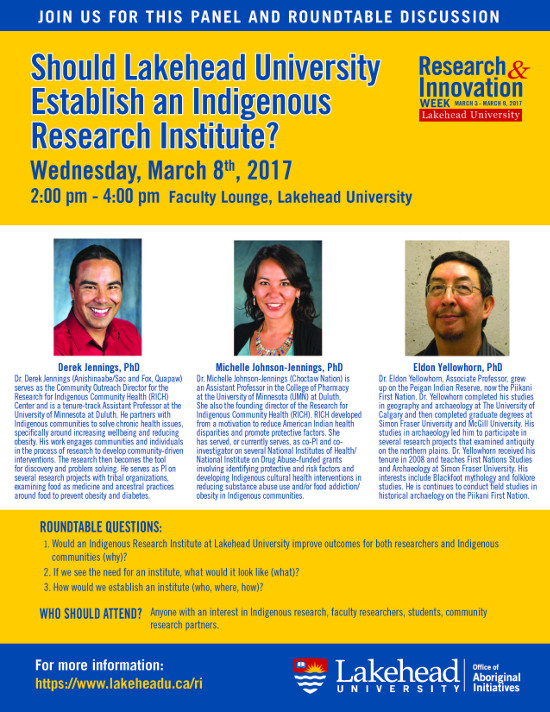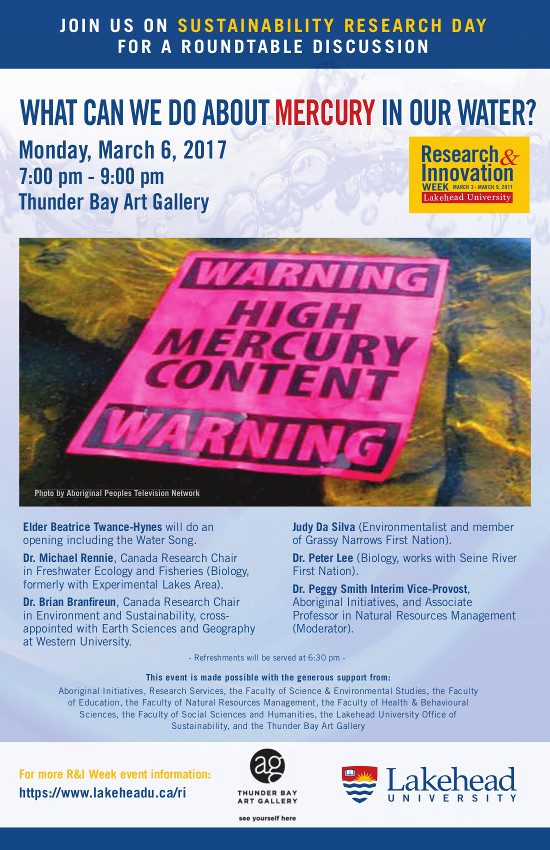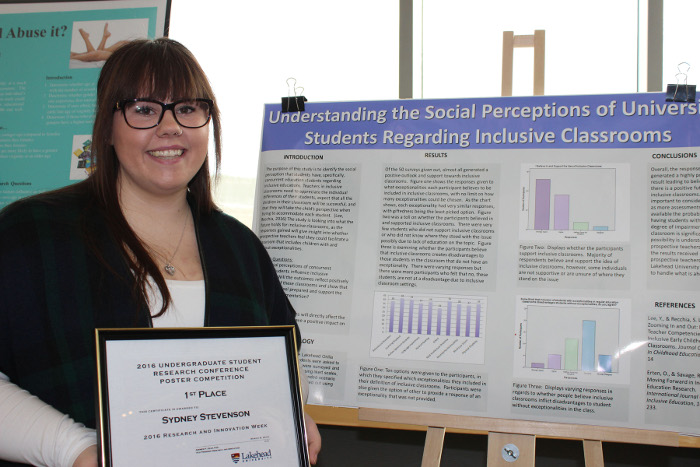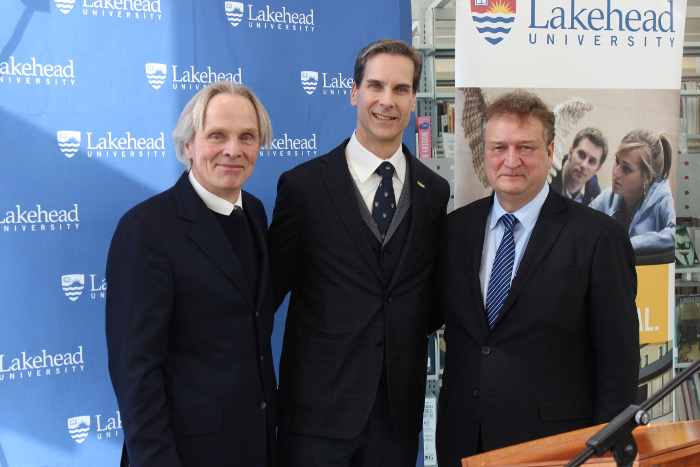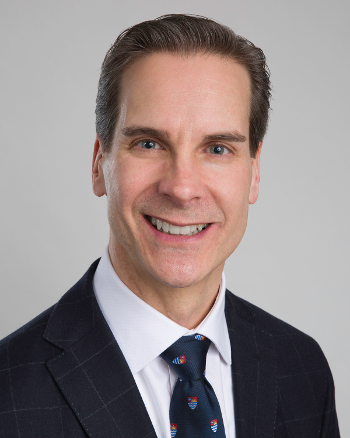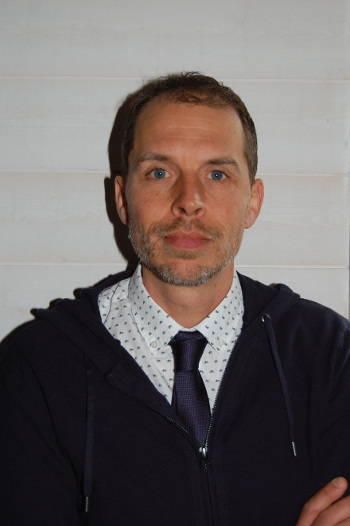Lakehead University’s Research and Innovation Awards celebrate exceptional work and perseverance

Dr. Andrew Dean, Lakehead's Vice-President, Research and Innovation, right, presented Dr. Wilson Wang with the Distinguished Researcher Award on Thursday.
March 9, 2017 – Thunder Bay, ON
Lakehead University’s Research and Innovation Awards of Excellence Reception was held on Thursday, March 9 to celebrate the exceptional achievements of researchers and students.
Dr. Wilson Wang from Mechanical Engineering received the NSERC Distinguished Researcher Award, the highest honour conferred by Lakehead for research and scholarly activity.
“My research goal is to develop new technologies and intelligent tools for more reliable diagnostics and prognostics of the health conditions of engineering equipment, in real time,” Dr. Wang said.
His research could be used in the aerospace industry, for example, where airplanes are taken out of service after a fixed number of flight hours to undergo regular inspections. Often, the planes remain idle unnecessarily, because no faults are detected, Dr. Wang said, adding that one-third to one-half of the amount of money spent on maintenance in industry is wasted through these inefficiencies.
“This research would pinpoint faulty components, forecast the remaining useful life of the damaged unit, and schedule repair operations. These ‘smart’ systems could analyze data to adapt and improve their own performance, which would help Canadian companies improve production rates, reduce costs, and enhance their global competitiveness,” Dr. Wang said.
He received his BSc in Electro-Mechanical Engineering from Shandong University and MSc in Mechanical Engineering from Northeastern University, both in China.
Dr. Wang also received his MEng in Industrial Engineering from the University of Toronto and PhD in Mechatronics Engineering from the University of Waterloo.
He worked as a senior scientist at Mechworks Systems Inc. from 2002 to 2004, and then he joined the faculty of Lakehead University where he is now a professor in Mechanical Engineering.
Dr. Andrew Dean, Lakehead’s Vice-President (Research and Innovation), said he is proud of the University’s researchers and students.
“Congratulations to all Lakehead University's researchers and students on your success and thank you for your hard work,” Dr. Dean said.
“Lakehead is developing a reputation as a university where exceptional research and innovation happens, and it’s because of your dedication.”
Dr. Dean also thanked all of the students and members of faculty and staff who helped make the 12th annual Research and Innovation Week a great success, as well as the sponsors, partners and funding agencies.
Award Recipients
Three Minute Thesis Awards
First Place: Pavlo Karasyuk, MSc, Physics
Second Place: Ayyappa Kumar Sista Kameshwar, PhD, Biotechnology
People’s Choice Award: Keri-Lyn Durant, PhD, Educational Studies
Graduate Student Conference Poster Winners
-
CIHR Category Winner: Charlotte McEwen, Masters, Health Sciences
-
NSERC Category Winner: Harutyun Poladyan, PhD, Biotechnology
-
SSHRC Category Winner: Stephanie Campbell, PhD, Clinical Psychology
Senate Research Committee Awards
Contributions to Research Award
-
Dr. Vicki Kristman, Associate Professor in Health Sciences – CIHR Category
-
Dr. Pallavi Das, Associate Professor in History – SSHRC Category
-
Dr. Jason Blahuta, Associate Professor in Philosophy – SSHRC Category
Distinguished Researcher Award
Dr. Wilson Wang, Professor in Mechanical Engineering – NSERC Distinguished Researcher Award
Indigenous Partnership Research Award
-
Improving End-of-Life Care in First Nations Communities: Dr. Mary Lou Kelley, research team members, Fort William First Nation, Six Nations, Naotkamegwanning First Nation, and Peguis First Nation.
- Honourable Mention: Rehabilitation of Wild Rice Areas from Exotic Cattail Infestations. Dr. Azim Mallik, Dr. Peter Lee, graduate student Kristi Dysievick, Seine River First Nation.
Postdoctoral Fellows Poster Awards
-
First Place: Francis Hane, Department of Chemistry
-
Second Place: Maduraiveeran Govindhan, Department of Chemistry
Innovation Awards
-
Student Innovation Award: Sai Swaroop Dalli, Biotechnology Research Program
-
Faculty Innovation Award: Dr. Alla Reznik, Associate Professor in Physics
Canada Research Chair (CRC) Award
Dr. Charles Levkoe is Lakehead University’s newest Canada Research Chair (Sustainable Food Systems). He received a framed letter and a pin from Prime Minister Justin Trudeau.
– 30 –
Media: For more information or to arrange interviews, please contact Brandon Walker, Media Relations Officer, at (807) 343-8177, or mediarelations@lakeheadu.ca.
Lakehead University has about 9,700 full-time equivalent students and 2,000 faculty and staff in 10 faculties at two campuses in Orillia and Thunder Bay, Ontario. Lakehead is a fully comprehensive university: home to Ontario’s newest Faculty of Law in 44 years, the Northern Ontario School of Medicine, and faculties of Engineering, Business Administration, Health & Behavioural Sciences, Social Sciences & Humanities, Science & Environmental Studies, Natural Resources Management, Education, and Graduate Studies. In 2016, for the second consecutive year, Re$earch Infosource ranked Lakehead first among Canada’s undergraduate universities. Visit www.lakeheadu.ca.



